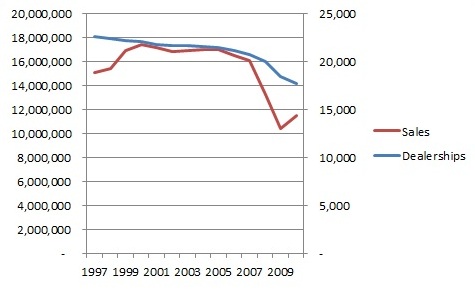 Recently I was speaking to someone concerning the mainstream press’s protection of final September’s earth-shaking occasions, and that acquired me eager about what the main newspapers were highlighting on their entrance pages. I thought it might be interesting to see, with the advantage of hindsight, what they have been highlighting and how important they thought it was. So listed here are the front pages (above the fold) of the Wall Street Journal, New York Times, and Washington Post on varied days in the financial disaster. I couldn’t find PDFs of the Financial Times from final September, which is unlucky (although FT staff should be at liberty to assist me out on that entrance!). I also included the total front page of the USA Today from September 15, 2008—the day after Lehman filed for bankruptcy—because it is just too rattling funny.
Recently I was speaking to someone concerning the mainstream press’s protection of final September’s earth-shaking occasions, and that acquired me eager about what the main newspapers were highlighting on their entrance pages. I thought it might be interesting to see, with the advantage of hindsight, what they have been highlighting and how important they thought it was. So listed here are the front pages (above the fold) of the Wall Street Journal, New York Times, and Washington Post on varied days in the financial disaster. I couldn’t find PDFs of the Financial Times from final September, which is unlucky (although FT staff should be at liberty to assist me out on that entrance!). I also included the total front page of the USA Today from September 15, 2008—the day after Lehman filed for bankruptcy—because it is just too rattling funny.
So Delegate was the way in which to go for most people, the place you rent a financial advisor who supports, administrates, and coordinates your monetary plan with other advisors and acts as the Vice President of Finance and Administration and you’re the CEO, Partner, or Managing Director who then has options and alternatives to investigate and make choices with a group of individuals. Answer – in fact, I had a University professor, age 66, come in for a retirement plan …we each knew in the course of the preliminary consultation that his financial situation was very tight and prospects regarded dim for a snug retirement. Here are 5 financial headlines that would change your life, in the event that they ever made it to press. No story necessary.
Answer – Back in 1995 the first IALS study was released. IALS is the International Adult Literacy Survey and so they have launched subsequent research during the previous 15 years…essentially the research recognized literacy not as the essential capacity to read and write, but as domains of behavior by classes – Prose, Documents, Quantitative…and recent studies now embrace a 4th component – Problem Solving. They ranked competency into 5 ranges, 5 being the highest. As an instance, a Level 4 Quantitative query asked the participant to calculate how much money there would be if $a hundred earned 6{c8f95e1e3019d83ceefb719040939faf2bd31aed86393ba5b6b975155c7b2729} interest yearly for 10 years, and the participant had a years and {c8f95e1e3019d83ceefb719040939faf2bd31aed86393ba5b6b975155c7b2729} chart to entry the knowledge…80{c8f95e1e3019d83ceefb719040939faf2bd31aed86393ba5b6b975155c7b2729} of adults ages 16-64 bought the question fallacious! So consider the typical person attempting to decipher their investment assertion or retirement projections from quite a lot of eventualities.
Want me to tweet them to you on a weekly basis as a mindfulness reminder? Just observe me on Twitter @DeYoeWealth and send me a message with #Headlines in the subject line. Today, Asia has a stronger economic outlook. Developing Asia’s economies grew 6.8 percent yearly over the previous twenty years, sooner than every other region. The area’s growth now relies much more on domestic demand. These achievements belie criticisms in the course of the crisis that Asia’s progress miracle was a myth and unsustainable.
Answer – I got here across the thought from James Surowiecki’s e-book The Wisdom of Crowds…basically the premise is that individuals can not independently be taught all they need to know. In a globally related world, there’s tremendous value in using technology to collaboratively join and learn with others. He proposes that that the knowledge of crowds comes not from the consensus resolution of the group, but from the aggregation of the concepts/thoughts/selections of each individual in the group. I actually believe in that premise, but I also have a healthy skepticism about who’s actually within the crowd the place I’m getting info. Technology has raced forward within the monetary companies business over the past 30 years, but I’m convinced that human habits and particularly financial conduct has not progressed nearly as rapidly and is unlikely to do so.